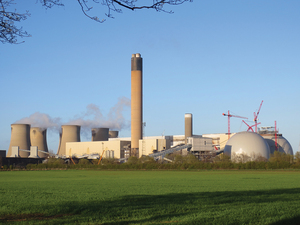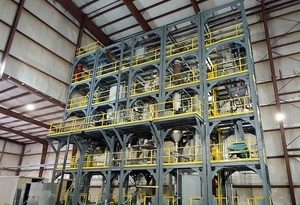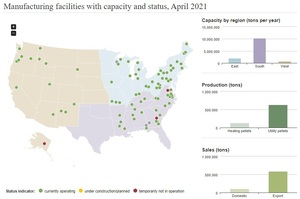Drax expresses support for Northern Endurance Partnership
Energy Disrupter
ADVERTISEMENT
U.K. biomass power producer Drax Group plc has spoken out in support of the recently announced Northern Endurance Partnership, which aims to develop offshore carbon dioxide infrastructure in the North Sea. The partnership will benefit Drax’s plan to become carbon negative.
BP, Eni, Equinor, National Grid, Shell and Total on Oct. 26 announced the formation of the NEP. The partnership aims to develop carbon dioxide transport and storage infrastructure in the U.K.’s North Sea, with BP as the operator. The group said the planned infrastructure will serve the proposed Net Zero Teesside and Zero Carbon Humber projects, which aim to establish decarbonized industrial clusters in the Teeside and Humberside regions of the U.K.
“Kickstarting the development of the transportation and storage infrastructure required to permanently lock away industrial CO2 emissions moves us closer to achieving Drax’s world-leading ambition to be a carbon negative company by 2030,” said Jason Shipstone, chief innovation offer at Drax. “It is also critical to the decarbonization of many other businesses across the North.
“The formation of the Northern Endurance Partnership is therefore a very exciting development, which supports the plans for industrial decarbonization across Yorkshire and the Humber, protecting jobs and delivering a post-Covid green recovery,” Shipstone continued.
The Zero Carbon Humber project is anchored by the Equinor-led Hydrogen to Humber (2H2) Saltend, which aims to establish a hydrogen production plant with carbon capture at PX Group’s Saltend Chemicals Park. A pipeline network developed by National Grid Ventures would connect energy-intensive industrial sites throughout the region. Drax’s bioenergy carbon capture and storage (BECCS) is among the projects that would connect to the pipeline network.
Earlier this month, the Zero Carbon Humber project sent an open letter to U.K. Energy Minister Kwasi Kwarteng calling on the government to back its major funding bid through the Industrial Strategy Challenge Fund and help make the project the world’s first net zero industrial cluster.
In addition to the open letter signed by the 12-member coalition of the Zero Carbon Humber project, 45 groups also submitted formal letters of support encouraging the U.K. government to help fund the project. Three of those letters specifically discuss the benefits of Drax’s BECCS project. One is authored by C-Capture, which is working closely with Drax on its BECCS project. When scaled up, C-Capture said Drax’s BECCS project could deliver 16 million metric tons of negative emissions annually. A separate letter, authored by the York and North Yorkshire Local Enterprise Partnership, estimates the deployment of BECCS technology at Drax could support around 6,000 direct jobs.
The Zero Carbon Humber project submitted a bid for approximately £75 million in funding through phase two of the Industrial Decarbonization Challenge, which forms part of the Industrial Strategy Fund, on Oct. 7. According to the group, the project could reduce the U.K.’s annual emissions by 15 percent and save industry approximately £27.5 billion in carbon taxes by 2040.















